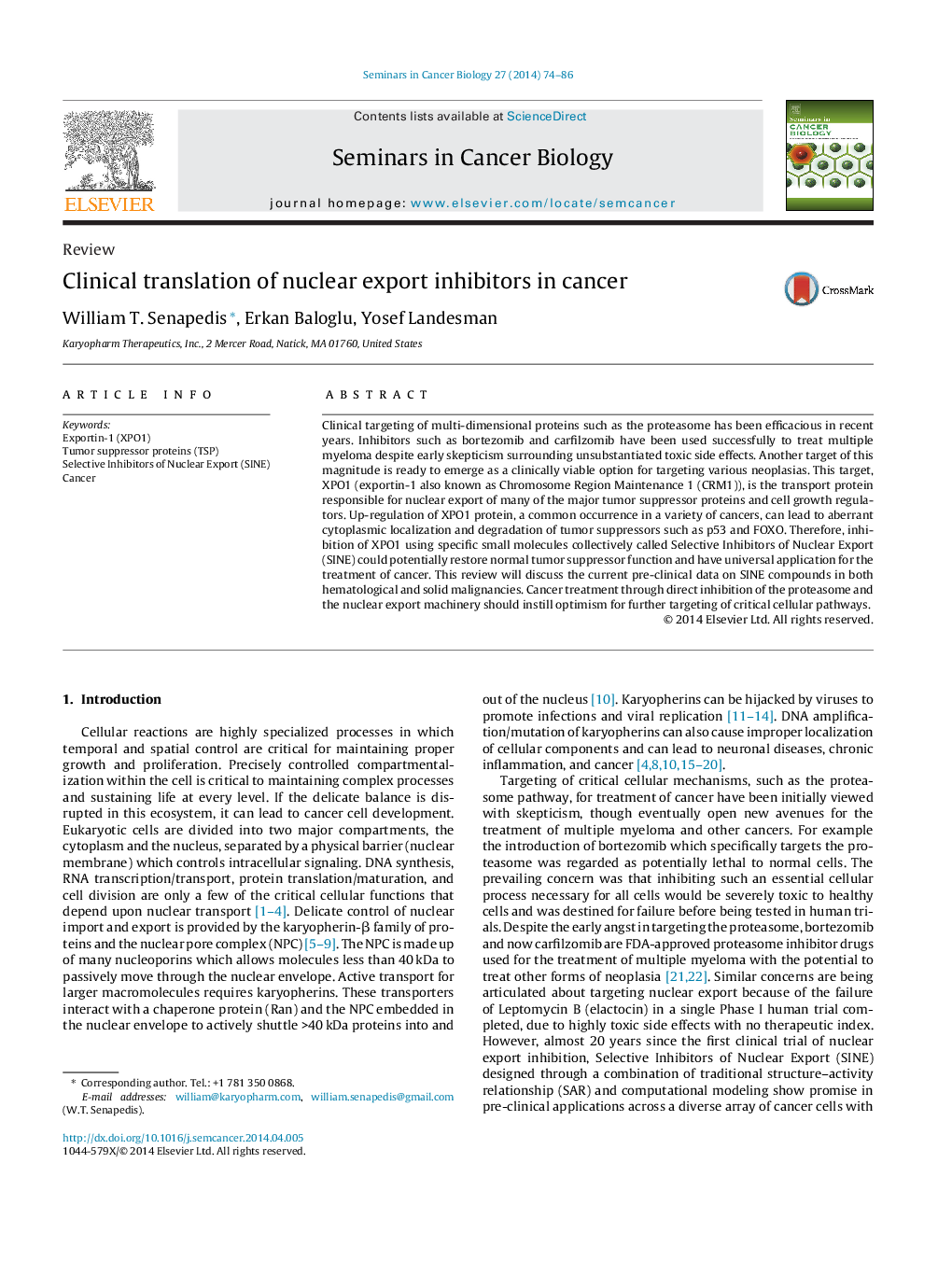| Article ID | Journal | Published Year | Pages | File Type |
|---|---|---|---|---|
| 2023695 | Seminars in Cancer Biology | 2014 | 13 Pages |
Clinical targeting of multi-dimensional proteins such as the proteasome has been efficacious in recent years. Inhibitors such as bortezomib and carfilzomib have been used successfully to treat multiple myeloma despite early skepticism surrounding unsubstantiated toxic side effects. Another target of this magnitude is ready to emerge as a clinically viable option for targeting various neoplasias. This target, XPO1 (exportin-1 also known as Chromosome Region Maintenance 1 (CRM1)), is the transport protein responsible for nuclear export of many of the major tumor suppressor proteins and cell growth regulators. Up-regulation of XPO1 protein, a common occurrence in a variety of cancers, can lead to aberrant cytoplasmic localization and degradation of tumor suppressors such as p53 and FOXO. Therefore, inhibition of XPO1 using specific small molecules collectively called Selective Inhibitors of Nuclear Export (SINE) could potentially restore normal tumor suppressor function and have universal application for the treatment of cancer. This review will discuss the current pre-clinical data on SINE compounds in both hematological and solid malignancies. Cancer treatment through direct inhibition of the proteasome and the nuclear export machinery should instill optimism for further targeting of critical cellular pathways.
